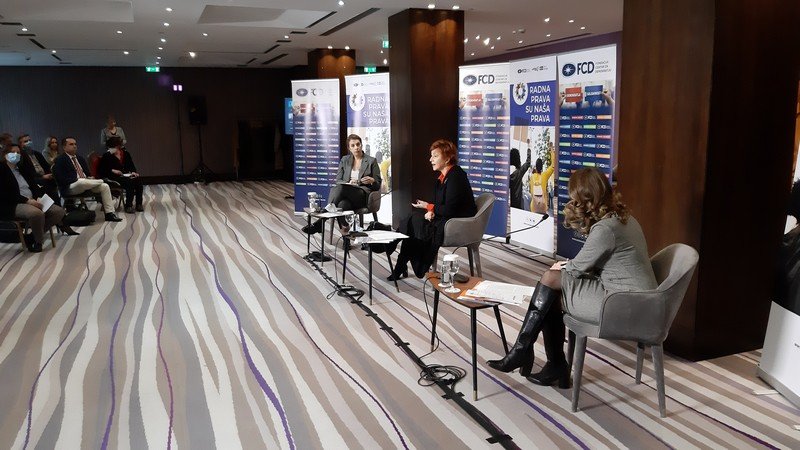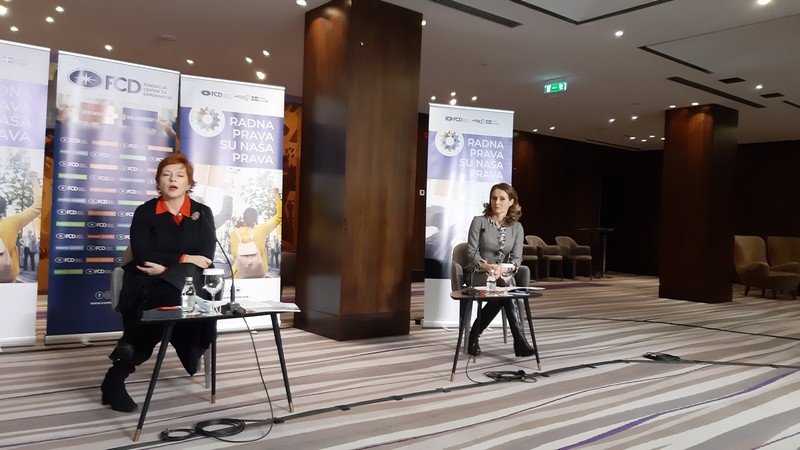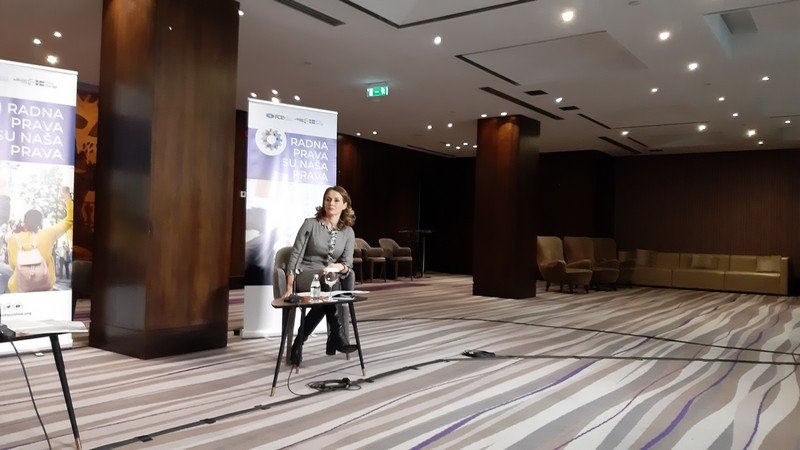Achieving economic growth and dignified work is probably one of the most important goals of sustainable development, but at the same time the most difficult to achieve in the conditions of the crisis we are facing, which has led to an increase in inequality at all levels, said the Commissioner for the Protection of Equality, Brankica Janković, at the conference “Dignified work and economic development – do they go together?” organized by the Center for Democracy Foundation.
Janković reminded that even before the crisis, at the end of 2019, the Commissioner for the Protection of Equality prepared a Special Report on discrimination in the field of work and employment, because this area has been the most common reason for citizens to contact the Commissioner since the institution was founded. The Report, as well as the practice of the institution, showed that, although formally women and men have equal rights, in practice the picture is different. There is a deep gap between the proclaimed principles and concrete practice, and the overall socio-economic position of women in Serbia is significantly worse than that of men. This is shown by the rates of employment or unemployment, activity and participation in decision-making, the wage gap, poverty, and feminization of occupations and jobs. Women also felt the consequences of the crisis more, because the professions where they make up the majority – health and social care, trade, education, media, etc. – bore the brunt.
Economic growth and dignified work, which includes the right to fair working conditions, fair wages, decent living, promotion, rest, limited working hours, and other rights in the field of work, are inextricably linked, and compromises in this area can only result in increasing inequality. It is the duty of every society to take care of this, especially in conditions of major crises, such as the current one, concluded the Commissioner.




